A dream vacation can turn into a financial nightmare if you’re not prepared.

Nothing ruins a trip faster than realizing your money situation is a mess. A lost wallet, unexpected fees, or a frozen bank card can turn an exciting adventure into a stressful scramble. No one wants to spend their vacation dealing with financial chaos when they should be enjoying new sights, great food, and unforgettable experiences. The good news? A little preparation goes a long way in making sure your finances stay secure while you travel.
Avoiding money disasters isn’t just about budgeting—it’s about having backup plans, understanding currency exchange, and knowing what to do if something goes wrong. By taking a few simple precautions before and during your trip, you can prevent financial headaches and focus on what really matters. Whether you’re jetting off for a week or embracing long-term travel, these eleven strategies will help keep your money safe, accessible, and stress-free.
1. Always carry multiple forms of payment in different places.
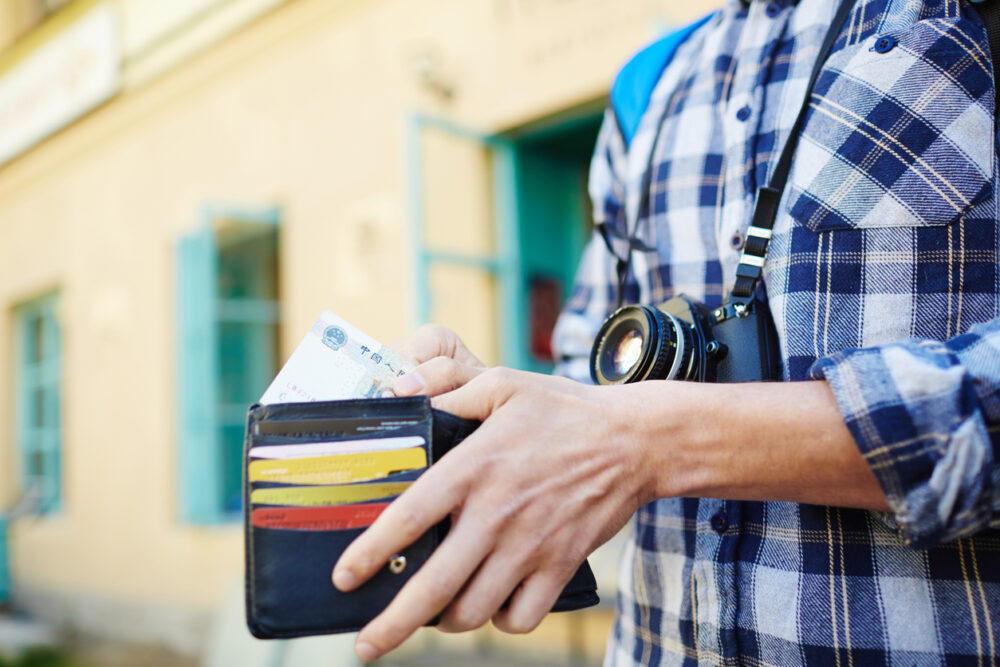
Relying on a single debit or credit card is a recipe for disaster. If your card gets lost, stolen, or declined, you could find yourself in a tough spot with no way to pay for food, transportation, or even a place to stay. The best approach is to carry at least two different cards and a small amount of local currency, keeping them in separate places, as reported by Martha C. White of AARP.
Store one card in your wallet and keep the other in a secure spot like a hotel safe or hidden travel pouch. A mix of payment options—credit card, debit card, and cash—ensures that if one method fails, you have a backup. Digital payment apps like Apple Pay or Google Wallet can also serve as an emergency option in places that accept them. Spreading out your money reduces the risk of being completely stranded if something unexpected happens.
2. Notify your bank about your travel plans before you leave.

Few things are more frustrating than having your bank freeze your card in the middle of a trip. Banks and credit card companies monitor for fraud, and international transactions can trigger an automatic block. Calling or setting up a travel notice through your banking app before you leave helps prevent this headache, according to Socrates Alvarez of Investopedia.
Some banks no longer require notifications for travel, but it’s always worth checking their policy. While you’re at it, ask about foreign transaction fees and ATM withdrawal charges so you’re not caught off guard by extra costs. If your bank has a partner institution in your destination country, using their ATMs may help you avoid hefty withdrawal fees. Taking this step in advance can save you time, stress, and unnecessary financial surprises.
3. Avoid airport currency exchange booths at all costs.
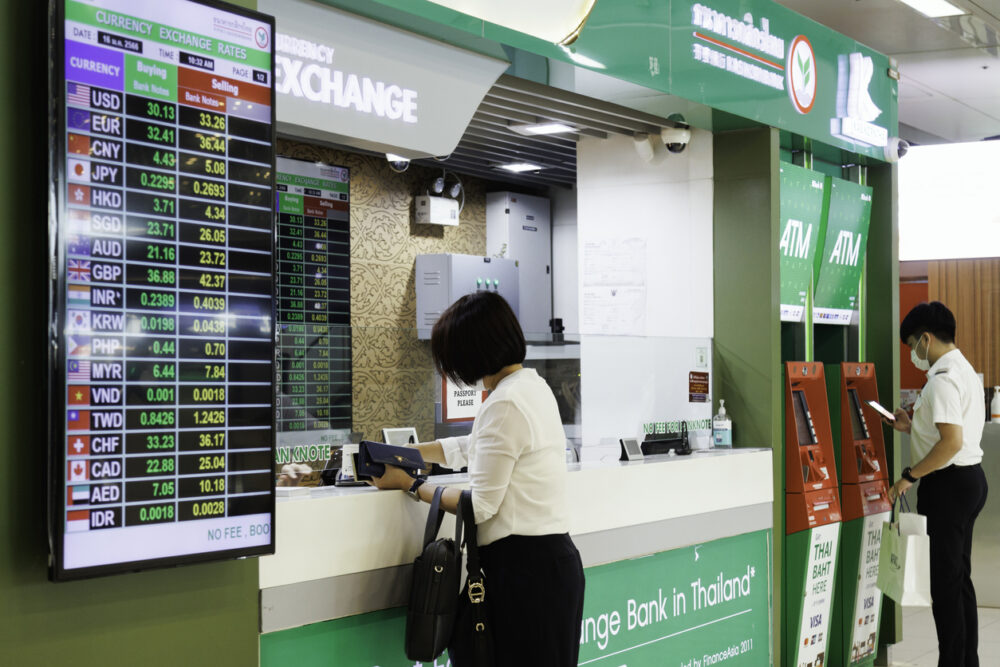
It’s tempting to swap cash at the airport for convenience, but it’s also one of the worst financial moves you can make. Airport exchange kiosks offer some of the worst exchange rates and highest fees, meaning you’ll get far less for your money, as stated by Mellisa Lamberina of Nerd Wallet.
Instead, withdraw local currency from an ATM using your debit card upon arrival. ATMs generally offer the best exchange rates, especially if you use a bank that refunds international withdrawal fees. If you must exchange cash, do it at a local bank or a reputable currency exchange office in the city. Planning ahead by ordering foreign currency from your bank before you leave can also save you money and eliminate the need for last-minute airport exchanges.
4. Keep emergency cash hidden in a secure place.
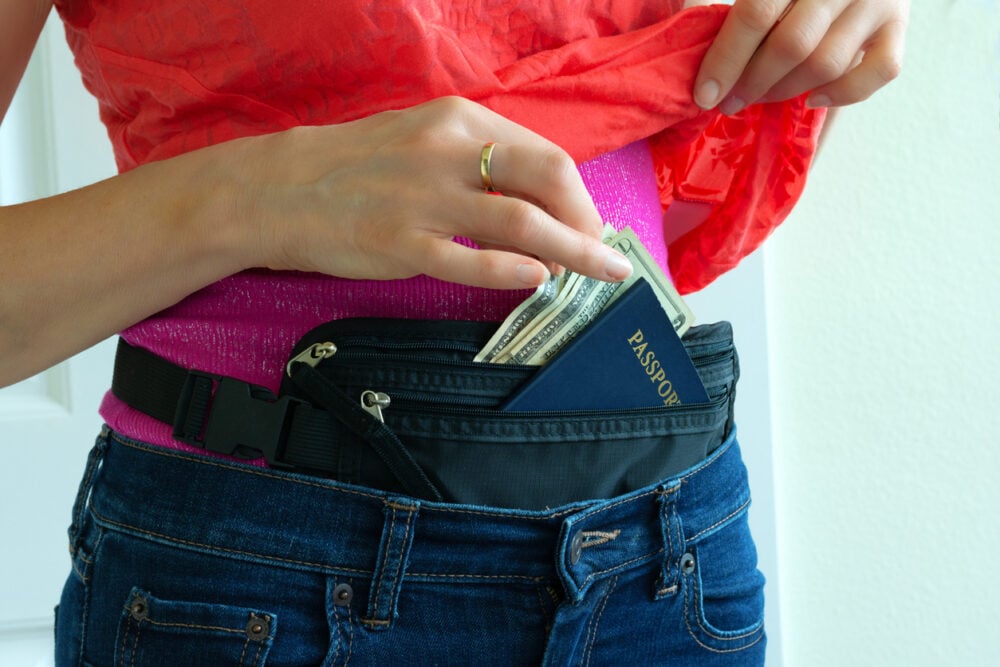
Losing your wallet or getting your card stolen in a foreign country is a nightmare scenario, but having an emergency stash of cash can keep you from being completely stranded. The key is to store it in a place that’s separate from your everyday spending money.
Good hiding spots include inside a sock, a hidden pocket in your backpack, or even tucked inside a toiletry bag. Aim for enough to cover a night’s accommodation, a meal, and transportation to a safe location—just enough to get by until you sort out a replacement card. Choose small denominations to make it easier to use without needing change. While you hope you never need it, emergency cash can be a lifesaver in unexpected situations.
5. Use a travel-friendly credit card to avoid unnecessary fees.
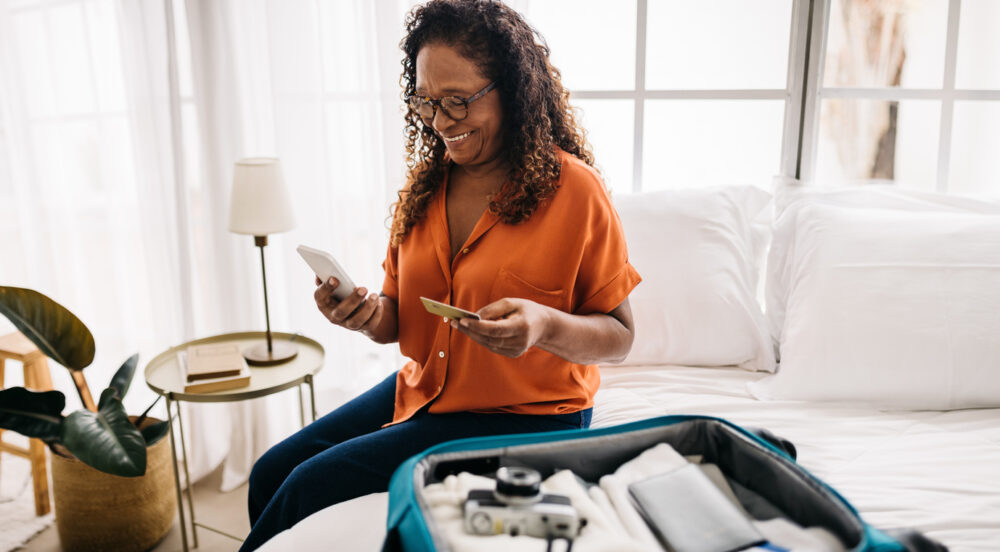
Some credit cards pile on foreign transaction fees, adding an extra 2-3% to every purchase you make abroad. Over the course of a trip, those fees can add up fast. Before you travel, check whether your card charges foreign transaction fees, and if it does, consider applying for a travel-friendly card that doesn’t.
Many travel credit cards also offer perks like travel insurance, rental car coverage, and purchase protection. Using the right card can save you money while also giving you extra peace of mind. If you’re traveling long-term, having a card that earns points or cashback on travel-related expenses can also be a great way to offset costs.
6. Never use public Wi-Fi for banking or financial transactions.

Public Wi-Fi networks are a hacker’s playground, and logging into your bank account on an unsecured connection is asking for trouble. Cybercriminals can intercept your data, steal login credentials, and gain access to your accounts without you even realizing it.
If you need to check your finances while traveling, use a virtual private network (VPN) to secure your connection or rely on mobile data instead. Many banks also offer two-factor authentication, which adds an extra layer of security when accessing your account. Taking these precautions helps protect your money and personal information from digital threats.
7. Take photos of your cards and important documents.
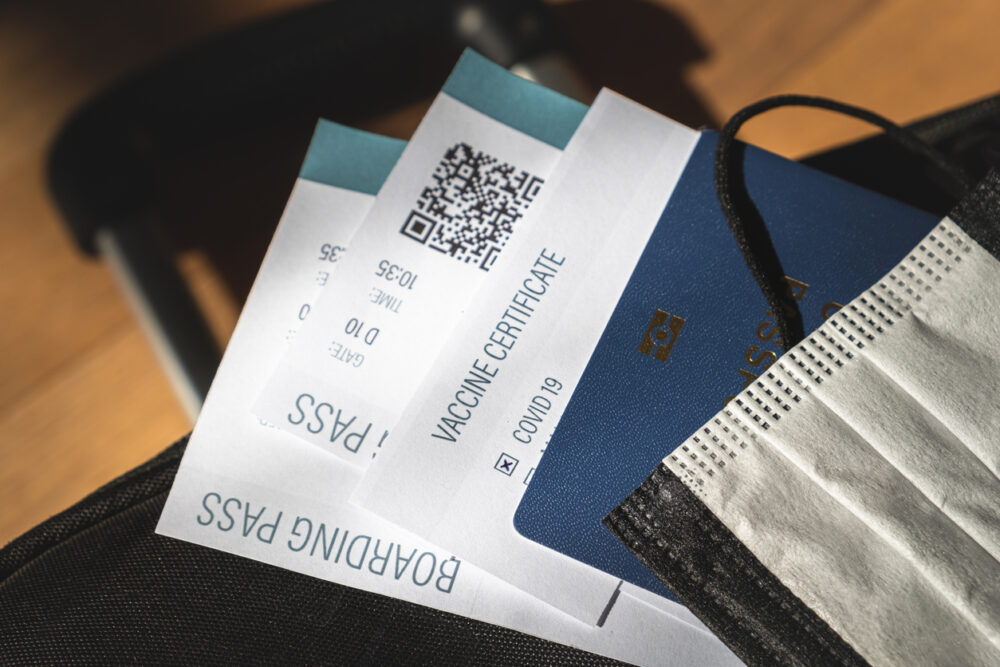
Losing your wallet or having your bag stolen is stressful enough, but not having access to your account details makes it even worse. Before you leave, take clear photos of the front and back of your credit cards, passport, and other important documents. Store them securely on your phone or in a password-protected cloud storage service.
Having this backup makes it easier to cancel lost cards, report fraud, or replace your passport if needed. If you’re uncomfortable storing digital copies, write down key details like bank contact numbers and keep them in a secure place. Having access to your essential information can make dealing with an emergency far less stressful.
8. Be cautious with ATMs, especially in tourist areas.
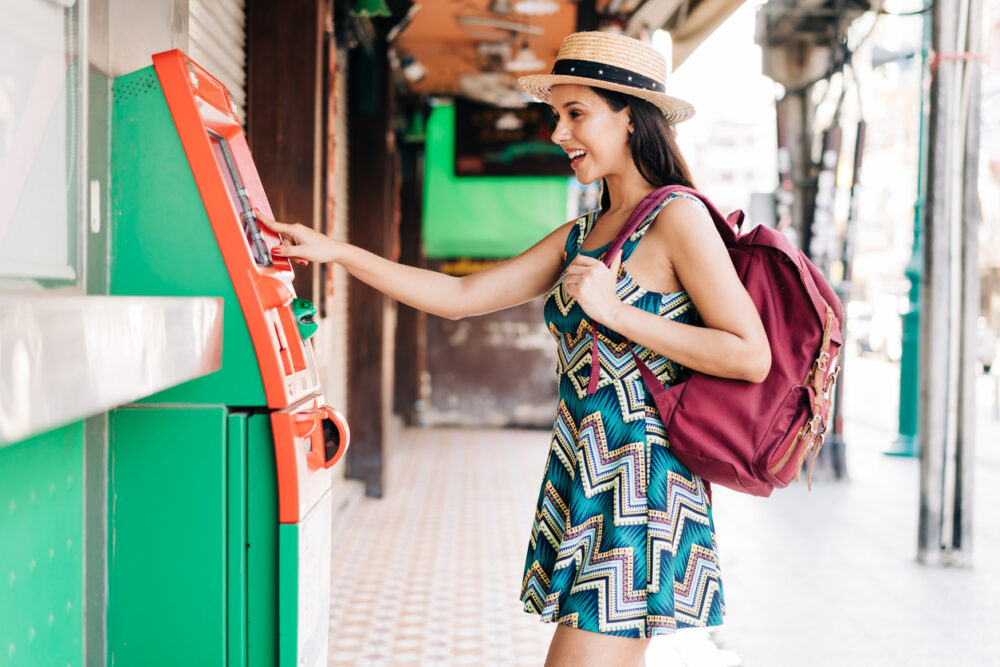
Not all ATMs are created equal, and using the wrong one can lead to high fees or even security risks. ATMs inside banks or reputable financial institutions are generally safer and offer better exchange rates than standalone machines in tourist hotspots.
When withdrawing money, always shield your PIN from prying eyes, and be cautious of card skimmers—devices that thieves attach to ATMs to steal your card information. If an ATM looks suspicious or feels off, find another one. Checking your bank statements regularly while traveling also helps catch unauthorized transactions early.
9. Set a realistic daily budget and track your spending.

Travel expenses add up quickly, and it’s easy to lose track of spending when you’re caught up in the excitement of a new destination. Setting a daily budget helps ensure you don’t blow through your funds too fast.
Use a budgeting app or simply jot down expenses in a notebook to keep yourself accountable. Allow some flexibility for unexpected splurges, but keep an eye on major costs like meals, transportation, and activities. Being mindful of your spending can help stretch your budget further and prevent financial stress later in the trip.
10. Have a plan for accessing emergency funds.

No one likes to think about worst-case scenarios, but being prepared can save you a lot of trouble. If your wallet is lost or stolen, knowing how to access emergency funds quickly is crucial.
Options include having a trusted friend or family member who can wire money through Western Union or using a secondary bank account that you can access online. Some travel credit cards offer emergency cash advances, so it’s worth checking if yours provides this feature. Having a backup plan ensures that if something goes wrong, you’re not completely stranded.
11. Double-check your travel insurance for financial protections.
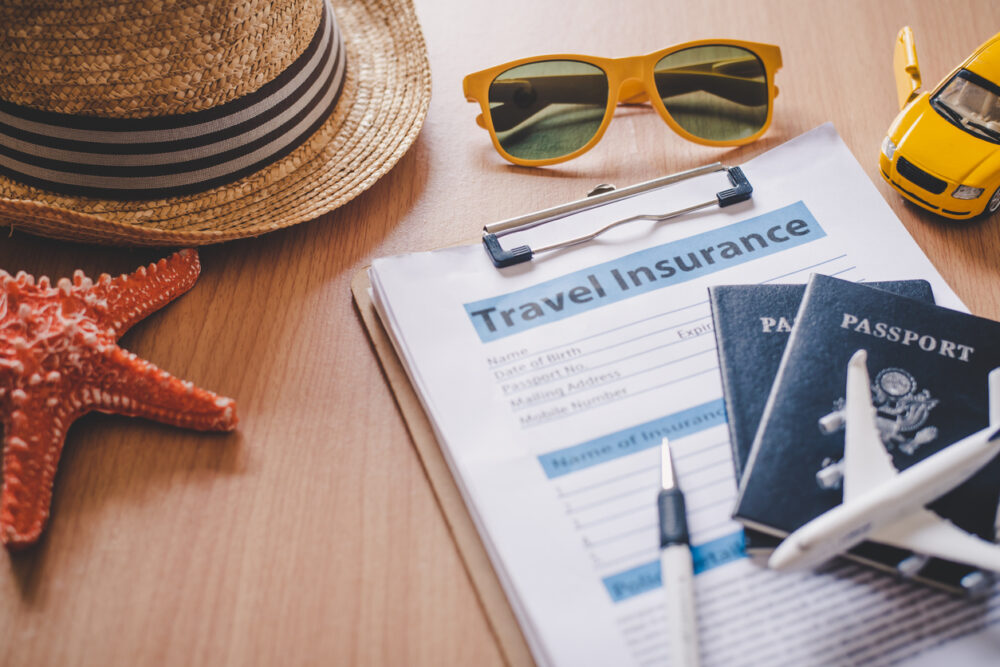
Travel insurance isn’t just for medical emergencies—it can also protect you financially if your trip is interrupted, your luggage is lost, or you become a victim of theft. Some policies even cover missed flights, rental car damage, or fraud-related expenses.
Before purchasing a plan, read the fine print to see what’s covered and make sure it aligns with your travel style. A small investment in the right insurance can save you thousands in potential losses and give you peace of mind throughout your trip.
